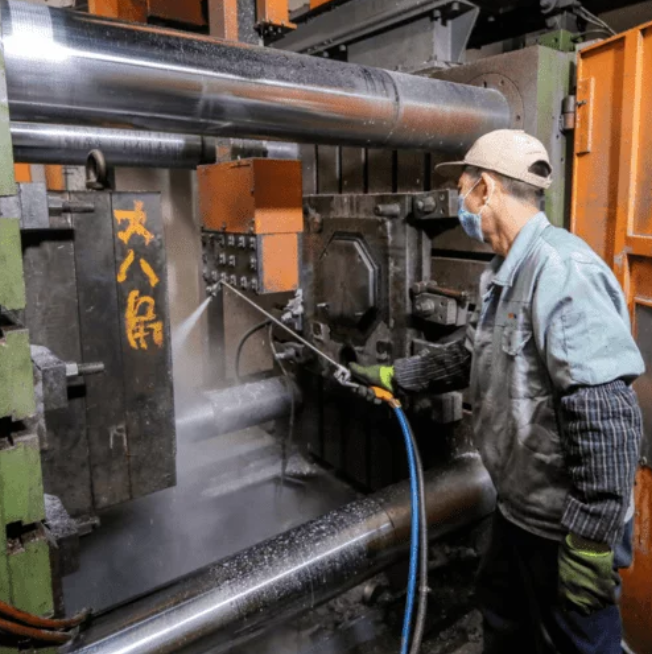Aluminum Conversion Coating: Enhancing Surface Properties for Improved Performance
Introduction:
Aluminum is a versatile metal that is widely used in various industries due to its lightweight, corrosion-resistant, and high-strength properties. However, aluminum surfaces are prone to oxidation, which can affect their performance and durability. To mitigate this issue, aluminum conversion coatings are commonly applied to enhance the surface properties and improve the overall performance of aluminum-based products.
1. Understanding Aluminum Conversion Coating:
Aluminum conversion coating is a chemical process that involves the transformation of the aluminum surface into a more corrosion-resistant and durable layer. This process creates a protective barrier on the surface, preventing direct contact with the environment and reducing the potential for corrosion. Two commonly used conversion coating methods for aluminum are anodizing and chromate conversion coating.
2. Anodizing:
Anodizing is an electrochemical process that converts the surface of aluminum into a thick oxide layer. This layer enhances the aluminum\’s resistance to corrosion, abrasion, and wear while providing an aesthetically appealing finish. Anodizing can be performed using different techniques, including sulfuric acid anodizing, chromic acid anodizing, and hard coat anodizing. Each technique offers specific advantages based on the desired application and the required properties of the coated aluminum.
3. Chromate Conversion Coating:
Chromate conversion coating involves the deposition of a thin layer of chromate compounds on the aluminum surface. This process provides corrosion resistance, as well as improved paint adhesion for subsequent surface finishes. Chromate conversion coatings can be applied using various methods, such as immersion, spraying, or brush application. The resulting coating not only enhances the aluminum\’s performance but also provides an attractive appearance.
4. Benefits of Aluminum Conversion Coatings:
a. Corrosion Resistance: The primary benefit of aluminum conversion coatings is their ability to enhance the corrosion resistance of aluminum surfaces. This is crucial in industries where aluminum products are exposed to harsh environments or corrosive substances.
b. Improved Adhesion: Conversion coatings provide better adhesion for subsequent surface finishes, such as paint or powder coating. This ensures a durable and long-lasting finish on aluminum-based products.
c. Aesthetic Appeal: Anodizing and chromate conversion coatings offer various color options, allowing for the customization of aluminum surfaces. This is particularly useful in industries where appearance plays a significant role, such as architecture or consumer electronics.
d. Increased Durability: Conversion coatings increase the hardness and wear resistance of aluminum surfaces, resulting in improved durability and extended product lifespan.
e. Environmental Sustainability: Aluminum conversion coatings are considered environmentally friendly as they do not contain hazardous substances and can be easily recycled.
5. Applications of Aluminum Conversion Coatings:
Aluminum conversion coatings find applications in a wide range of industries. Some prominent examples include:
a. Automotive: Conversion coatings are used on aluminum components in automobiles to enhance their corrosion resistance and improve paint adhesion.
b. Aerospace: In the aerospace industry, conversion coatings are applied to aluminum parts and structures to protect against corrosion and increase durability.
c. Construction: Aluminum conversion coatings are used on architectural aluminum products, such as window frames and façades, to provide corrosion resistance and improve their appearance.
d. Electronics: Conversion coatings are employed in the electronics industry to protect aluminum-based components, such as heat sinks, from corrosion and enhance their thermal properties.
Conclusion:
Aluminum conversion coatings play a crucial role in enhancing the surface properties of aluminum, thereby improving its performance and durability. These coatings provide corrosion resistance, improved adhesion, and increased durability, making them indispensable in various industries. As the demand for high-quality aluminum products continues to rise, the use of conversion coatings will remain essential in ensuring the longevity and reliability of aluminum-based materials.
-

- Մանգենիումի համաձուլվածքի ձուլում Thixomolding մետաղական մասեր
-

- Bicycle Freehub 12/14/16 Inch Children Bike Low Rider Bikes Մագնեզիումի ալյումինե խառնուրդ Մանկական հեծանիվ 3-8 տարեկան Պահեստում
-

- CNC մշակված մասեր Ղեկի բրա
-

- OEM high pressure die casting magnesium alloy wheel for e-bike
-

- Magnesium alloy die-casting auto parts center control cover
-

- OEM Die casting manufacturer produce magnesium alloy wheel for kids push bike

 0086-750-5616188
0086-750-5616188 +86 13392089688
+86 13392089688 sales@zhongmei-tech.com
sales@zhongmei-tech.com







